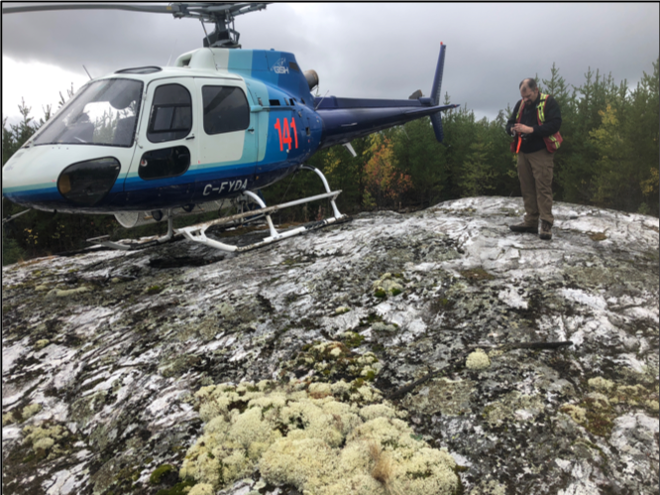A Sudbury lithium exploration company has struck a partnership with Queen’s University and Glencore to devise a way to produce lithium hydroxide for the North American battery industry.
Frontier Lithium has inked a strategic partnership agreement to work with XPS Expert Process Solutions, a Glencore spinoff company, and Queen’s University professor Ahmad Ghahreman to develop a process to refine spodumene concentrate into lithium hydroxide.
The collaborative testing project is built around Frontier Lithium’s PAK project, 175 kilometres north of Red Lake in northwestern Ontario.
The company claims its 6,976-hectare property is the highest grade lithium deposit in North America.
They have high hopes of becoming a near-term producer in providing three per cent of the world’s lithium demand by 2025 to both battery manufacturers and the glass and ceramic sectors.
"Leveraging expertise through partnerships echoes Frontier's approach to foster research and sustainable innovation,” said Frontier Lithium president-CEO Trevor Walker in an April 24 news release.
"This alliance will spearhead the production of high-quality battery grade lithium products in Northern Ontario and help establish our region as a significant Canadian contributor to clean energy technology."
XPS Expert Process Solutions is a Sudbury-based offshoot of international nickel mining giant Glencore.
Its team of metallurgists, engineers, geoscientists, technicians and technologists specialize in mining and mining process automation and optimization. They provide technical expertise to various clients in advanced exploration, mining projects and processing.
The technical work underway is a first phase, bench-scale, study that involves single stage dense media separation (DMS), flotation, pyrometallurgy and hydrometallurgy, according to Frontier Lithium’s news release.
The six to eight months of test work will evaluate the potential purity and recovery of lithium from concentrates to provide the data for a continuous pilot process.
“The initiative is well aligned with XPS's mandate to deliver practical, technical solutions and to assist our client partners to achieve their strategic objectives while growing our business,” said XPS's vice-president Dominic Fragomeni in a statement.
"Preliminary results show promise for being able to produce lithium hydroxide at a higher purity and at a lower cost compared to the industry average."
The PAK deposit is a lithium-cesium-tantalum (LCT) type pegmatite containing high-purity, technical-grade spodumene. The discovery was made by Ontario government geologists in the late 1990’s.
The deposit is exposed at surface with a strike length of 500 metres and remains open at depth to the northwest and southeast.




